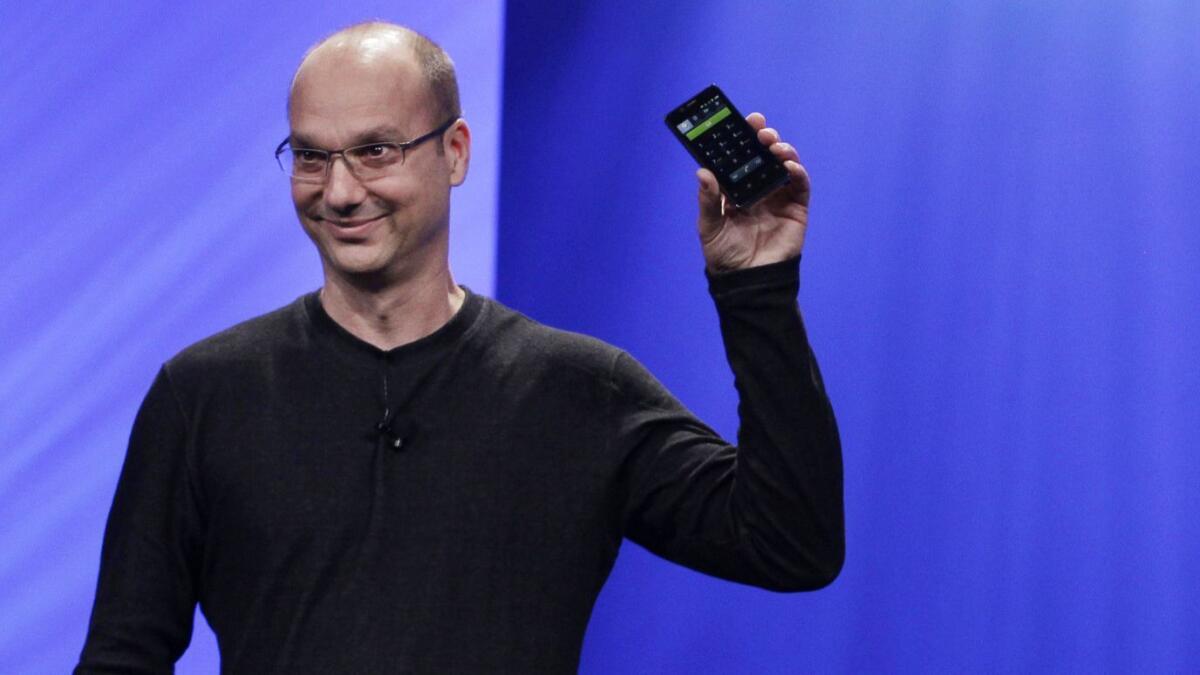Google says it’s ‘dead serious’ about workplace misconduct, amid reports it protected accused sexual harassers

- Share via
Google Chief Executive Sundar Pichai said the company is “dead serious” about allegations of sexual harassment and misconduct, in an internal memo sent to employees on Thursday and obtained by the Washington Post.
As many as 48 people have been fired from Google over sexual harassment allegations over the last two years, Pichai said, 13 of whom were senior managers and above.
“None of these individuals received an exit package,” he wrote in the memo, which was co-signed by Eileen Naughton, vice president of people operations.
The memo comes after the New York Times reported Thursday that Google paid Andy Rubin, the creator of the Android mobile operating system, $90 million after he left the company in 2014 over an allegation of sexual misconduct. Google also invested heavily in Rubin’s next project, according to the report, which also highlights two other cases in which the company seemingly protected employees accused of sexual harassment.
In his note, Pichai conceded that the Times’ report was “difficult to read.” The revelation is the latest blow to a company — and an industry — that has come under deep public scrutiny when it comes to workplace culture.
For years, critics have argued that Silicon Valley startups are dominated by whites and males, and that the demographic dynamic subtly influences everything from minor office interactions to major product decisions.
Tech companies acknowledge that women and minorities are under-represented in the industry: In its own diversity report, Google said this year that men account for 75% of the company’s leadership ranks and that about 93% are whites and Asians.
The ubiquity of men in the tech industry has given rise to a “bro-grammer” stereotype that infamously exploded into public view in 2017, when a former Uber employee said she had suffered sexual harassment on the job while the firm routinely ignored her complaints. The misconduct allegations touched off months of investigations, policy shifts and even the departure of its then-chief executive, Travis Kalanick.
Unlike Uber, Google now faces questions not only about a cover-up, but also about why the search giant seemingly rewarded those who engaged in inappropriate behavior.
More to Read
Inside the business of entertainment
The Wide Shot brings you news, analysis and insights on everything from streaming wars to production — and what it all means for the future.
You may occasionally receive promotional content from the Los Angeles Times.










